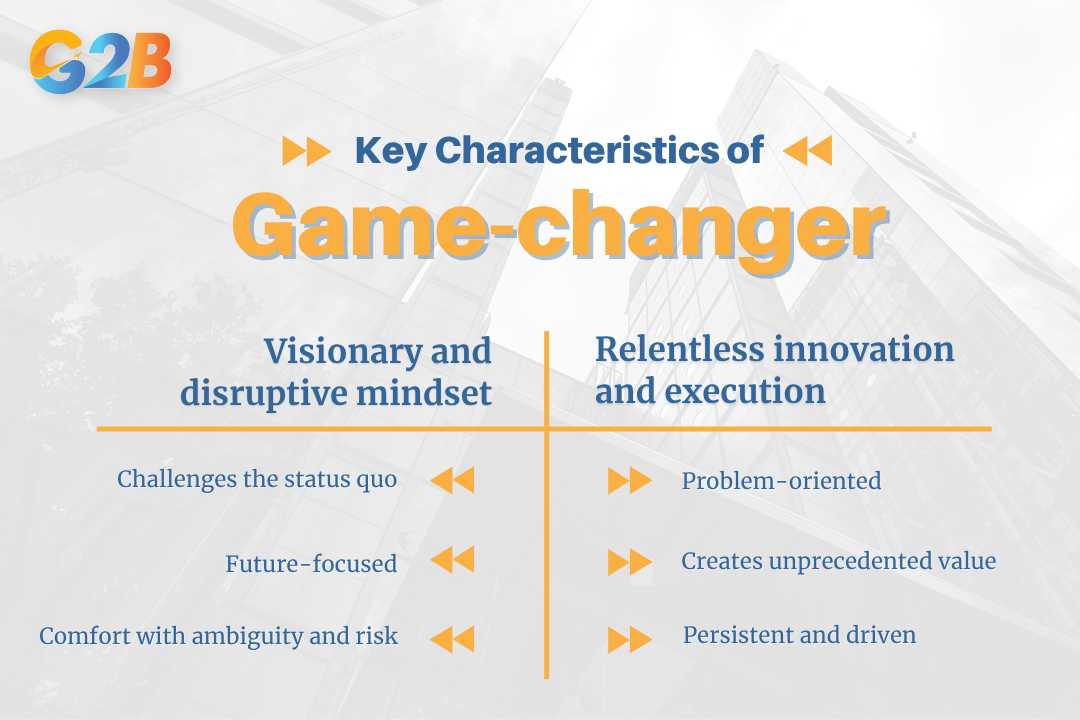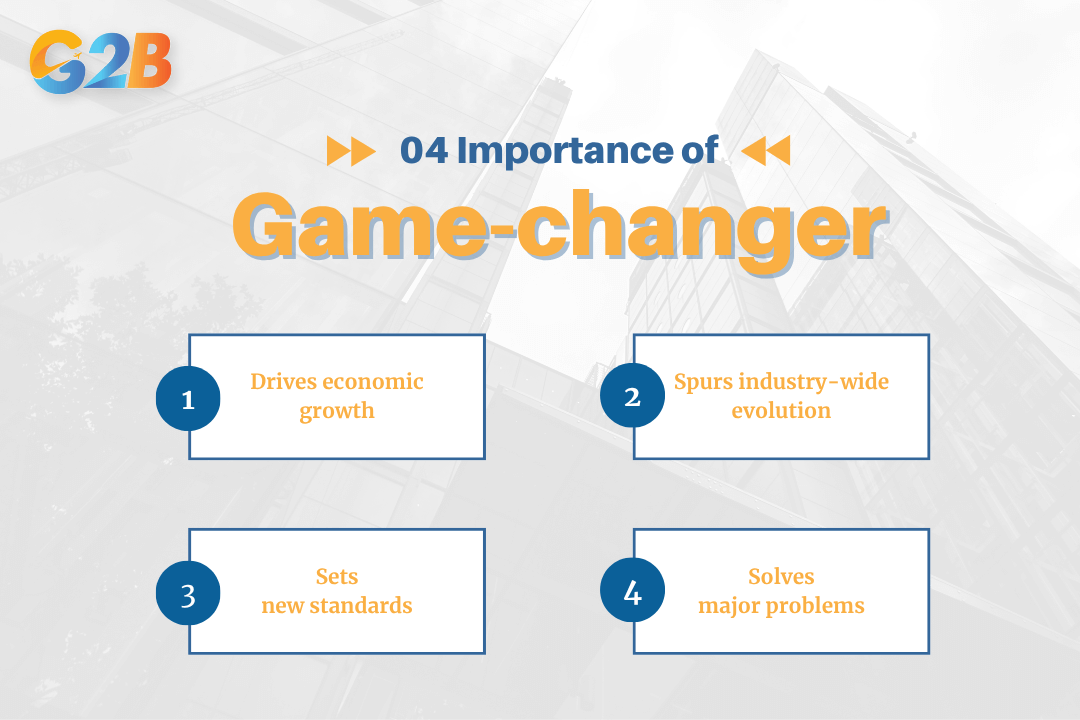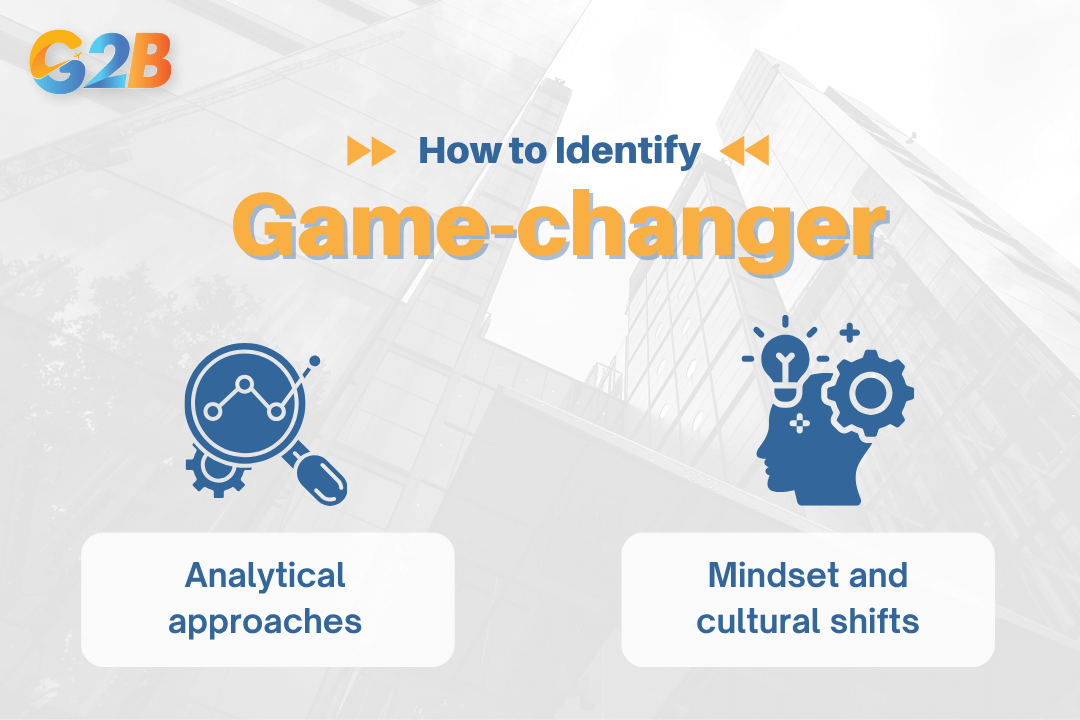A game-changer represents a person, idea, event, or product that dramatically shifts the course or strategy of an entire field. This guide will define what a game-changer truly is, explore its fundamental characteristics, detail its critical importance in business and society, and provide iconic examples that have shaped our world. Understanding the anatomy of a game-changer is the first step toward identifying or even becoming one.
This article explores the concept of a game-changer to help readers gain a clearer understanding of its impact across industries. We specialize in company formation and not in trend forecasting or strategic management services. For expert advice on business strategy or innovation, please consult a qualified professional or relevant authority.
What is a game-changer?
A game-changer is an idea, product, process, or individual that fundamentally shifts the way an industry, market, or field operates. It does not merely improve upon existing solutions; it creates a new paradigm, often making previous methods obsolete. The impact is so significant that it redefines standards, customer expectations, and the competitive landscape, and often has a lasting effect on the ecosystem. Think of it as moving from checkers to chess - a transition involving a completely new set of rules and strategies, fundamentally changing the nature of the competition, rather than just becoming a better checkers player. This transformative power is what distinguishes a true game-changer from a simple improvement or innovation.
Key characteristics of a game-changer
Understanding what makes someone or something a true game-changer requires looking beyond surface-level success. The following key characteristics reveal the mindset and qualities that set game-changers apart from the rest.

Key characteristics reveal the qualities that set game-changers apart from the rest
Visionary and disruptive mindset
- Challenges the status quo: Game-changers actively question and defy industry norms and long-held assumptions. They possess a relentless drive to look at what is currently being done and compare it to what is truly possible, spurring a monumental shift in the existing order. This often means they are viewed as disruptive because their very nature is to challenge how things are done.
- Future-focused: They possess a unique ability to foresee market shifts and anticipate future customer needs that may not yet exist. Game-changers think laterally and creatively, refusing to use the past to predict the future. Instead, they seek out solutions that others might instantly dismiss as impossible.
- Comfort with ambiguity and risk: They are not afraid to venture into unknown territory and take calculated risks that others would avoid. Becoming a game-changer requires the determination and commitment to manage uncertainties and overcome significant obstacles along the way. This willingness to operate outside of a traditional comfort zone is a hallmark of their personality.
Relentless innovation and execution
- Problem-oriented: Their innovation is deeply rooted in solving a significant, often unarticulated, customer pain point. Game-changers are adept at identifying areas of widespread dissatisfaction, high costs, or complexity, recognizing these friction points as opportunities for disruption. Their focus is on creating solutions that are simpler, more convenient, and more accessible.
- Creates unprecedented value: The solution offered is not just incrementally better; it provides a 10x improvement in value, efficiency, or experience. While incremental innovations are crucial for keeping a business competitive, game-changing innovations transform markets by introducing entirely new value propositions. They create, improve, and innovate around best practices to define the next practices.
- Persistent and driven: They demonstrate an obsessive commitment to their vision, overcoming countless obstacles to bring their idea to fruition. Game-changers are characterized by their persistence, courage, and relentless hard work. This productive obsessionality keeps them highly focused on solving problems and achieving their goals where others would give up.
The importance of game-changers to business

4 importances of game-changers to business
- Drives economic growth: Game-changers create entirely new markets and value chains, fueling economic expansion and job creation. By introducing disruptive technologies and business models, they unlock new avenues of opportunity and potential for significant financial growth, often transforming entire industries in the process.
- Spurs industry-wide evolution: They force competitors to adapt and innovate, preventing market stagnation and leading to better products and services for everyone. When a game-changer enters the market, incumbents are forced to re-evaluate their strategies and offerings, which accelerates the pace of innovation across the entire industry.
- Sets new standards: By introducing a superior model, they elevate customer expectations and establish new benchmarks for quality, price, and convenience. Innovations like on-demand services and subscription models have fundamentally altered what consumers expect from businesses, forcing industries to adapt to a new normal.
- Solves major problems: Many game-changers address significant societal or business challenges, leading to widespread positive impact. From revolutionary medical treatments like mRNA vaccines to technologies that foster global connectivity, these innovations can fundamentally alter the course of world events for the better.
Examples of game-changers
To better understand how game-changers influence progress, it helps to examine their real-life applications. The cases below highlight how innovative thinking can redefine entire markets.
Technological game-changers
- Apple's iPhone (2007): It was not the first smartphone, but it redefined the category by integrating a user-friendly operating system, the App Store, and a powerful computer into a single device. This revolutionary combination made brands like Nokia and BlackBerry, once giants of the industry, effectively obsolete by creating a new paradigm for mobile computing.
- Amazon Web Services (AWS) (2006): It pioneered cloud computing infrastructure-as-a-service, allowing startups and enterprises alike to launch and scale without the massive upfront investment in physical hardware. This fundamentally changed the economics of starting a technology company, democratizing entrepreneurship and fueling a new wave of digital innovation.
- Generative AI (e.g., ChatGPT): This technology is fundamentally changing content creation, software development, and customer service by automating complex cognitive tasks. Its ability to generate human-like text, code, and images is forcing a radical re-evaluation of knowledge work and creating new industries while disrupting existing ones.
Business model game-changers
- Netflix (Streaming): Netflix shifted the entire entertainment industry from a model based on ownership (DVDs, cable packages) to one centered on subscription-based access. This paradigm shift fundamentally altered how content is produced, distributed, and consumed globally, dethroning industry leaders like Blockbuster who failed to recognize the disruptive threat.
- Uber (Ride-sharing): Uber disrupted the heavily regulated taxi industry by creating a two-sided marketplace platform that connected drivers and riders with unprecedented ease and price transparency. Its on-demand, user-friendly app introduced a more affordable and convenient alternative, setting a new standard for urban transportation worldwide.
- Ford (Assembly line): While a manufacturing process, its application was a business model game-changer. By dramatically lowering the cost of producing automobiles, Henry Ford made them accessible to the middle class for the first time. This innovation didn't just sell more cars; it created the modern auto industry and reshaped urban landscapes and economies.
How to identify a game-changer?
In today’s fast-moving business world, spotting a potential game-changer can provide a decisive competitive edge. Here’s how to identify individuals or companies capable of redefining the status quo.

How to identify individuals or companies capable of redefining the status quo
Analytical approaches
- Identify market friction: Look for industries with widespread customer dissatisfaction, high costs, or complex processes. Where there is significant friction, there is a powerful opportunity for disruption. A game-changer often enters by providing a solution that is simpler, more affordable, and more accessible than the existing alternatives.
- Follow the "unfair advantage": A true game-changer has a sustainable, "unfair" advantage that is difficult for competitors to replicate, and resilient against rapid imitation or substitution. This could be proprietary technology, a powerful network effect where the service becomes more valuable as more people use it, or deep domain expertise that informs a superior business model.
- Look for 10x value propositions: Do not settle for ideas that are just 10% better. Search for innovations that offer an order-of-magnitude improvement in performance, cost, or convenience. Game-changers don't just compete; they make the old way of doing things irrelevant by providing a solution that is demonstrably and overwhelmingly superior.
Mindset and cultural shifts
- Question core assumptions: Actively challenge the "way things are always done" in an industry. A game-changer is often born from asking "Why?" repeatedly to uncover outdated logic and inefficient processes. This requires a willingness to rebel against the status quo and envision a completely different approach.
- Observe emerging behaviors: Pay close attention to how early adopters and younger demographics are using technology and solving problems in new ways. These behaviors are often leading indicators of future mainstream trends. The rise of social media platforms like TikTok, for instance, has fundamentally changed music discovery and marketing.
- Think in systems, not silos: A game-changer often emerges from connecting disparate fields or ideas and understanding and influencing entire ecosystems rather than isolated parts. Consider how a technology or business model from one industry could be applied to completely transform another. The ability to join the dots where others see no connection is a hallmark of visionary thinking.
A game-changer is a powerful force of transformation that redefines industries and shapes our future. It is characterized by a visionary mindset, a relentless drive for innovation, and an unwavering focus on execution. For those aspiring to become game-changers in Southeast Asia, Vietnam offers a dynamic environment for innovation and entrepreneurship. With supportive government policies and rapid economic growth, pursuing company formation in Vietnam can be the first step toward transforming bold ideas into reality.


 Delaware (USA)
Delaware (USA)  Vietnam
Vietnam  Singapore
Singapore  Hong Kong
Hong Kong  United Kingdom
United Kingdom 
